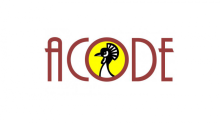Resource information
Food security in Uganda relies mainly on access to land and security of tenure. Land governance is marked by the contradiction between relatively progressive legislation and only partial implementation. Institutions that have to deal with land administration and land disputes, such as customary authority systems, local government, and special courts for land justice, have weakened in the last years. Women’s position with respect to land and inheritance also remains weak, both legally and in practice, undermining their livelihoods and status in society. Tenure insecurity in Uganda is a source of conflict: within families, between groups and between communities. Overall, land issues are increasingly politically sensitive. Specific issues are the landlord-tenant relations on mailo land; land tenure insecurity in post-conflict Northern Uganda; disputes over land expropriation by government; the implications of oil exploration and mining for local land tenure systems and rights, in particularly for pastoral livestock systems; and accusations of land grabbing in rural and urban areas. To tackle these issues, a new land policy was adopted in 2013.



